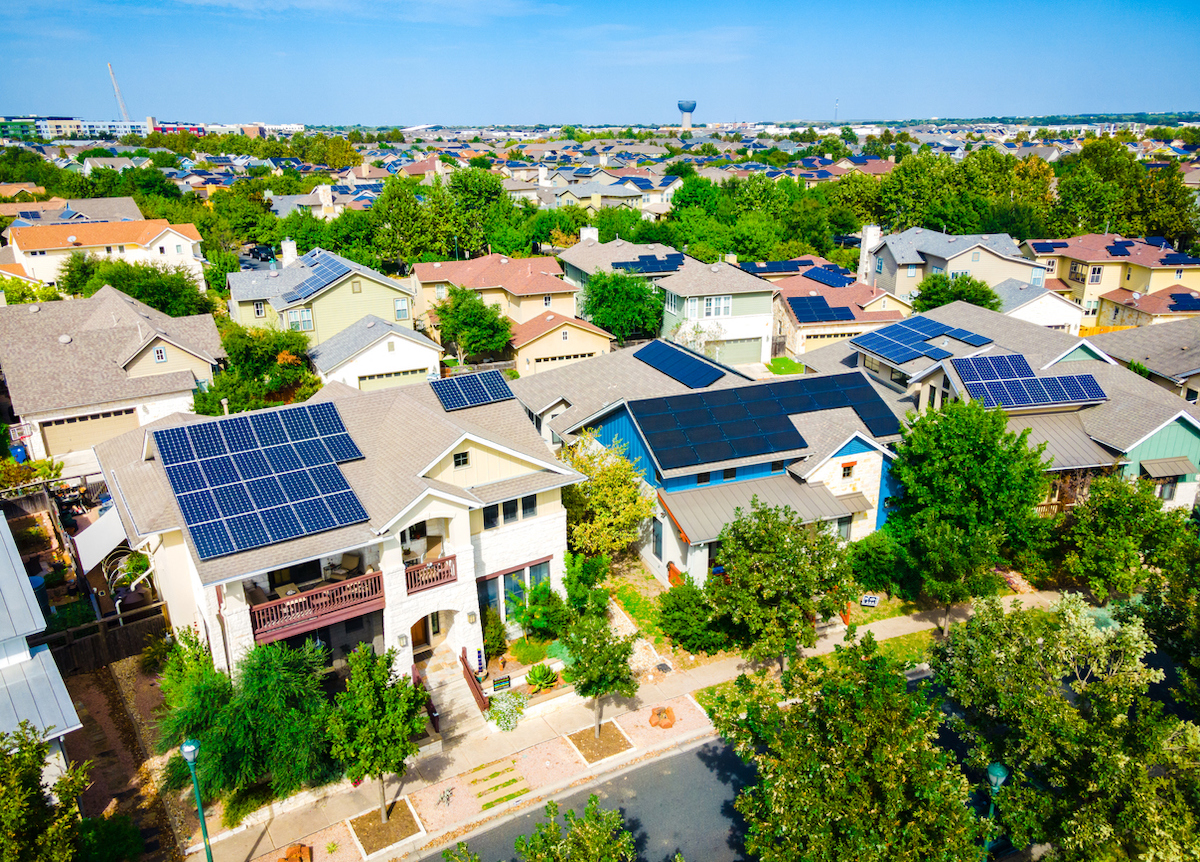

We may earn revenue from the products available on this page and participate in affiliate programs. Learn More ›
In 2021, solar energy accounted for 46 percent of all new electricity-generating capacity added in the United States. Additionally, residential solar installations set an annual record of 30 percent year-over-year growth, according to the recently released Solar Market Insight Report for 2021. Currently, solar power accounts for just 3.9 percent of total U.S. electricity generation, but that number is rapidly growing.
So is buying a home with solar panels the right move for you? Well, that depends on some key factors.
1. How much sun will your roof get?
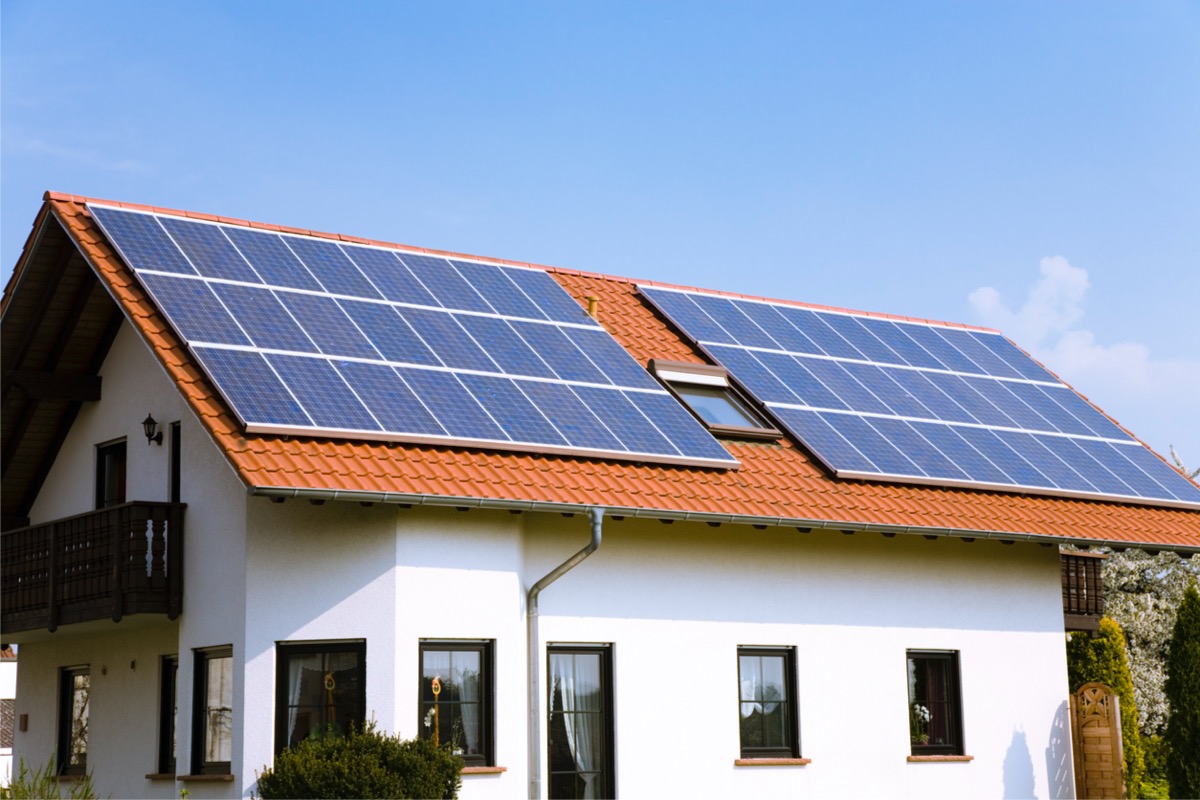
You’ll need plenty of sunlight for solar panel success. Check for trees both on your property and in neighbors’ yards. Have the trees grown and begun to cast too much shade since the solar panels were installed? If that’s the case, some tree trimming or transplanting (and neighborly negotiation) might be necessary.
While solar panels work best on south-facing roofs, both east- and west-facing roofs can also gather plenty of energy if they get enough sunlight throughout the day.
2. What about resale value?

Solar panels are viewed similarly to upgraded kitchens or remodeled bathrooms—they increase a home’s value. In fact, homes with solar panels sell for 1.4 percent more than similar homes without them, according to Zillow.
The photovoltaic value (PV) calculates energy production value for a solar panel system and is compliant with Uniform Standards of Professional Appraisal Practice. The PV value is a tool that both home sellers and home buyers can use to get the most accurate estimate of a home’s solar energy production.
3. Will you lease or own the solar panels?
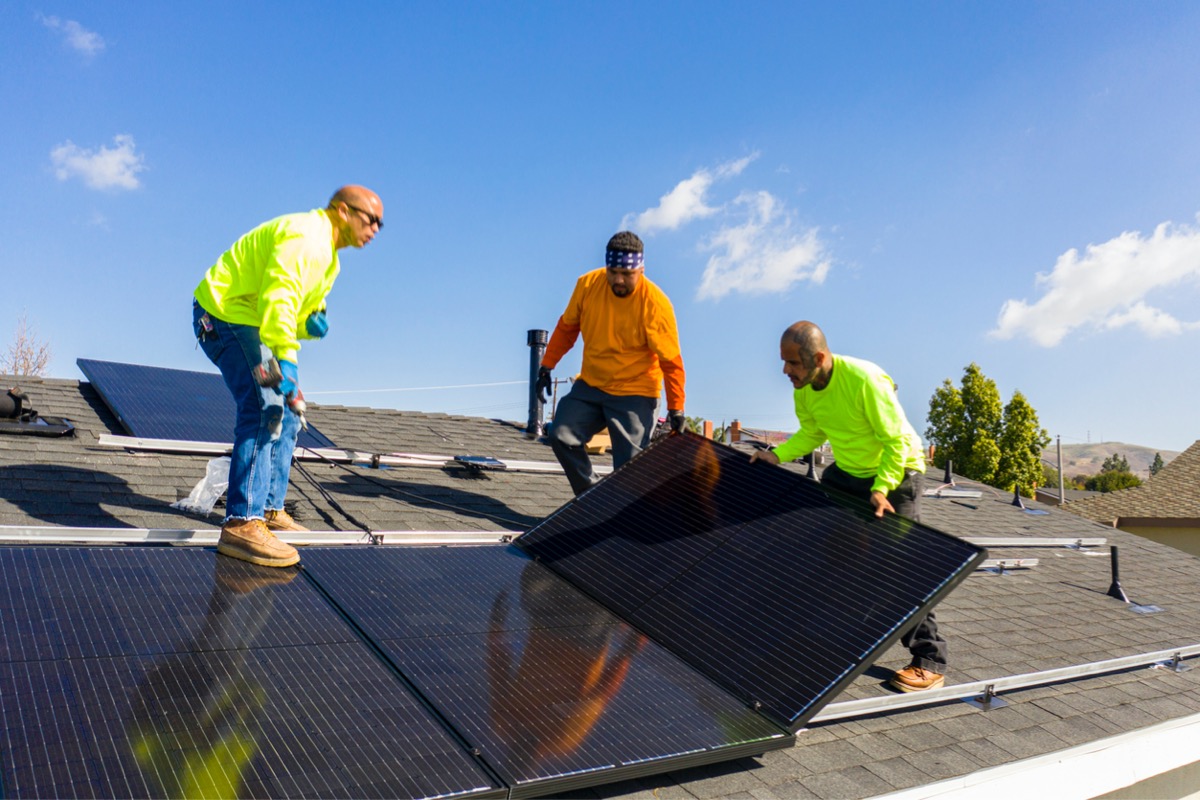
If you’re considering buying a house with solar panels, you’ll want to ask if they are leased or owned. Owning the solar panels on your house is the best financial decision, according to Consumer Reports, since solar panel lessees save less than those who purchase them outright.
You might save some money up front with a lease, but you may lose that advantage when buying a home with existing leased panels. When leasing solar panels, homeowners can lose control of just how many panels are placed on their roof and where, since the leasing company will be focused on maximizing its own bottom line.
Furthermore, a lease term for solar panels is generally 20 years. That means if you’re buying a home that has years left on the solar lease, you, as the home buyer, become the lessee.
4. How much maintenance are you in for?
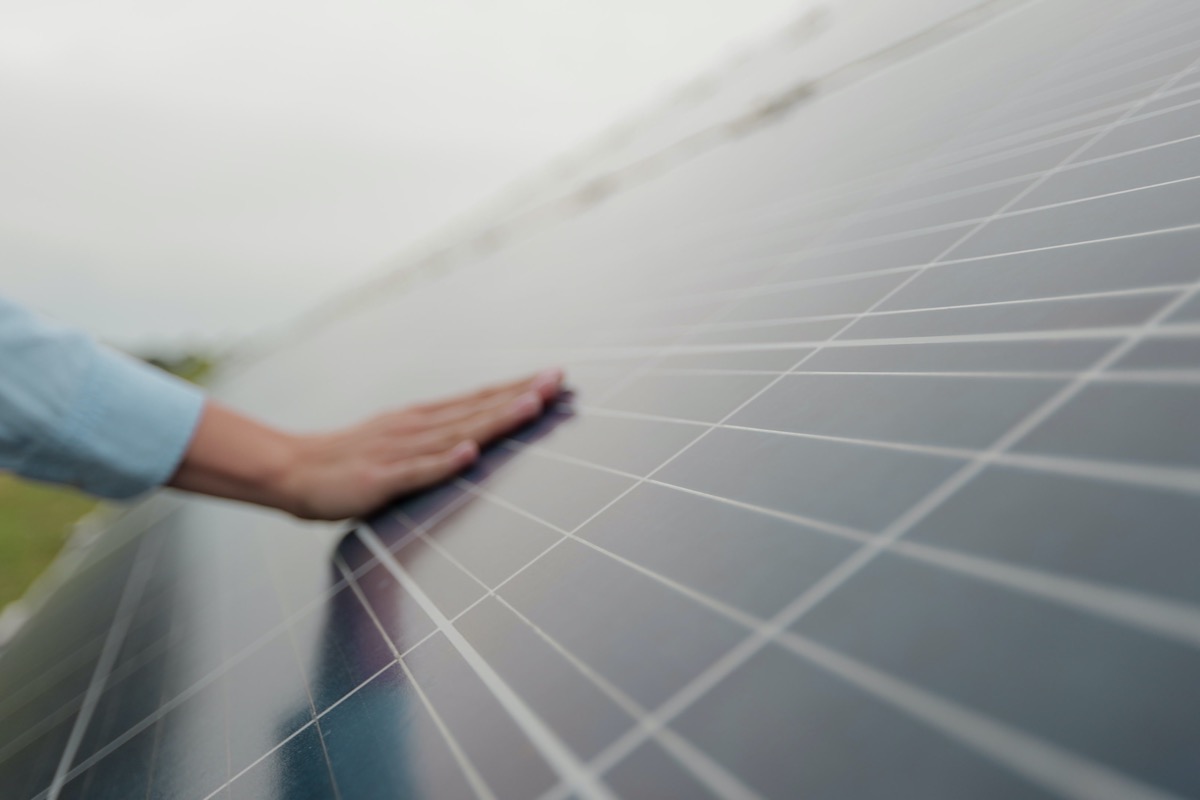
The good thing about solar panels is that they basically do their thing with little effort on your part. With that said, you’ll want to make sure to take care of your investment. With proper solar panel care, they can last you up to 30 years!
You’ll primarily need to clean the panels to keep them maintained. That means removing dirt and debris a couple times per year (think spring and fall) and after any storms that might leave them covered in debris. Cleaning will ensure the panels get enough sunlight to work properly.
You may also want to hire a professional annually for an inspection to make sure the panels are functioning as they should.
5. Can you still get a mortgage for a house with solar panels?
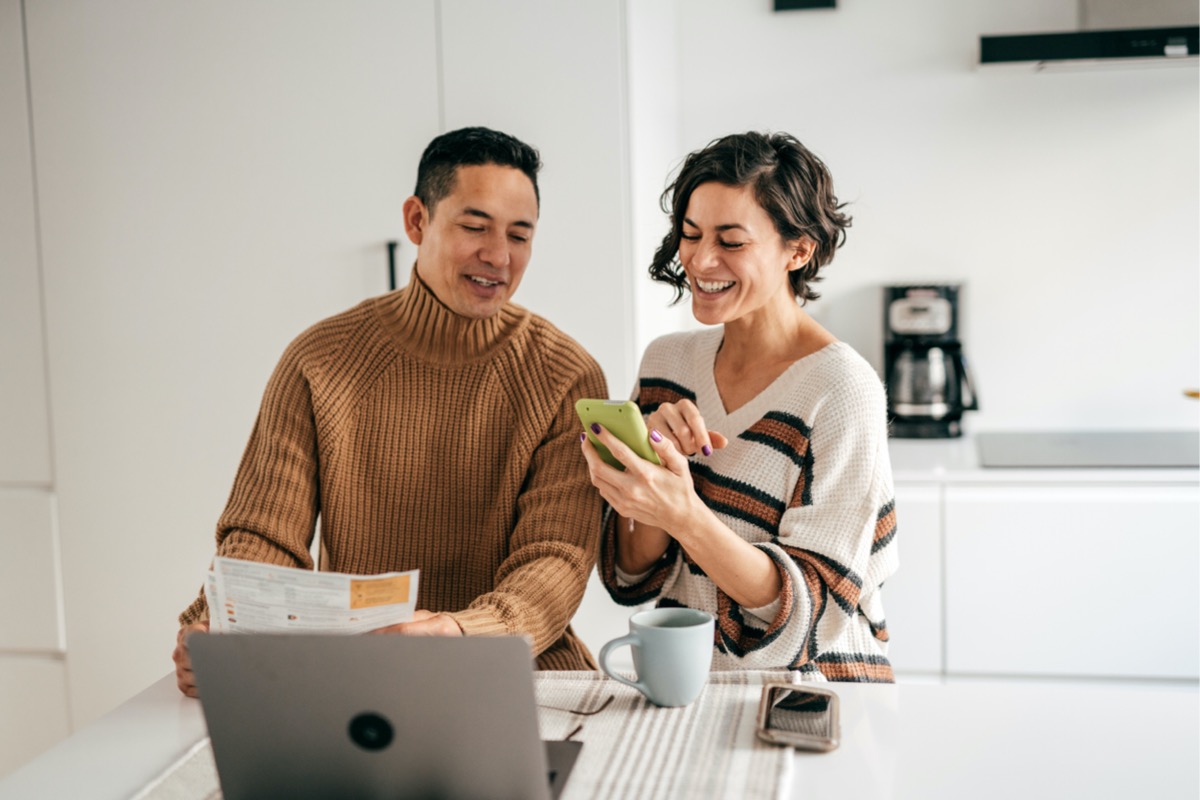
Buying a house with solar panels can affect the way you get a mortgage. In particular, matters like owning or leasing the panels and how the panels were financed might affect your mortgage.
If the seller of your soon-to-be home outright owns the solar panels, that’s ideal; the panels will likely only affect the home’s price. If you buy a home with leased solar panels, though, you’ll want to discuss any lease terms and monthly fees associated with the system.
6. What’s the difference between solar loans and financing?
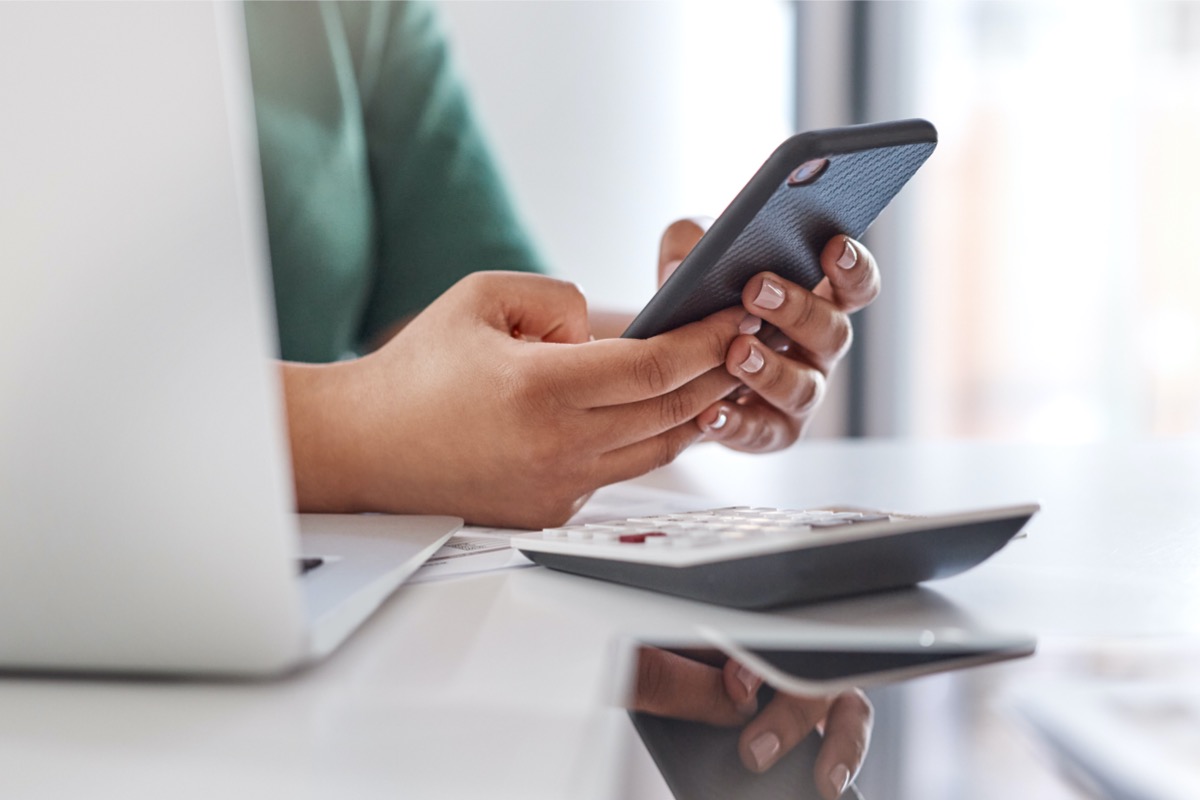
If the seller of the home owns the solar panels and is still making payments through a loan or through financing, you’ll want to know the details as the buyer.
If the panels were financed through a solar loan, the loan will remain the seller’s responsibility, even if the property is sold. That means the buyer is off the hook for making payments on that loan.
However, if the solar panels were purchased through Property Assessed Clean Energy (PACE) financing, the financing remains attached to the property, since payments are made via property taxes. Those payments would thus be transferred to the home buyer.
7. What if the roof needs to be replaced?
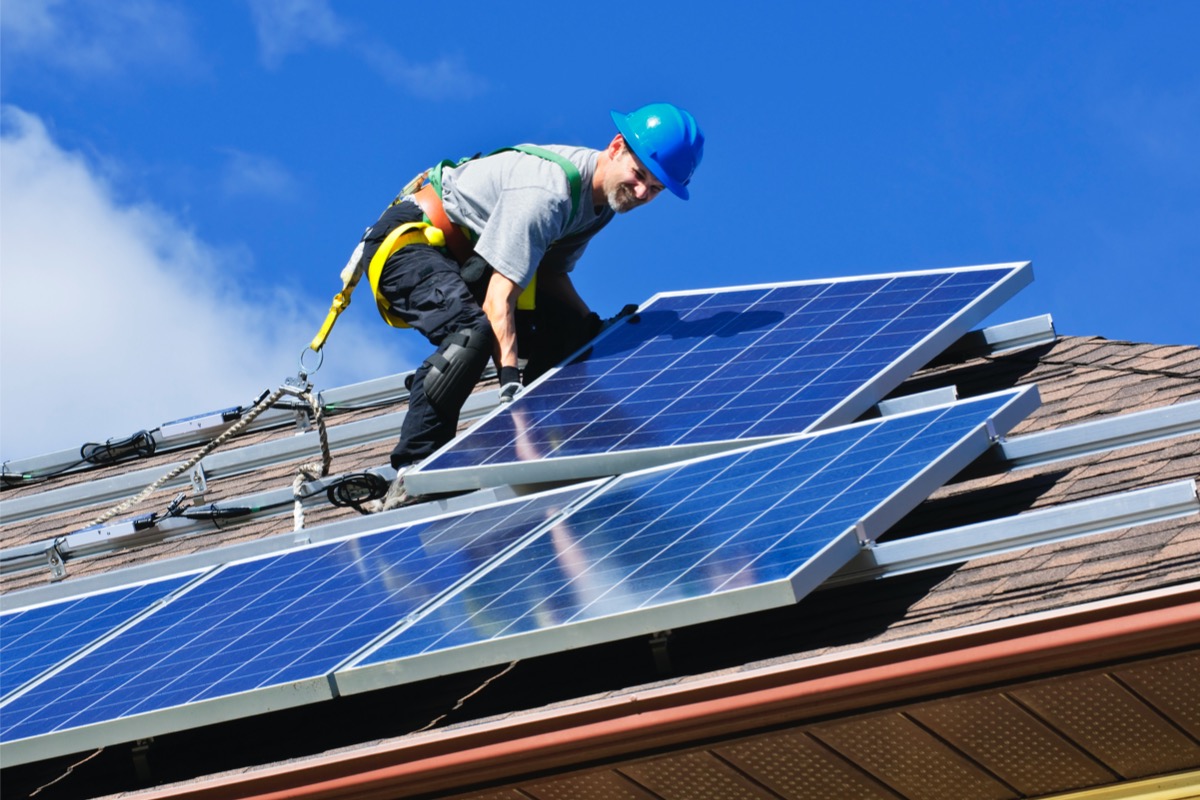
Roofs with solar panels should be in good shape, but there may come a time when the roof needs replacing.
If a roof with solar panels needs to be replaced, both the panels and the mounting hardware must be uninstalled and reinstalled. This work is often done by the solar panel installer, but sometimes the roofing company can take care of it. The re-installation can cost anywhere from $1,500 to $6,000, on top of the roofing costs.
RELATED: The 8 Best Solar Pool Heaters, Vetted
8. Will you really save money with solar panels?
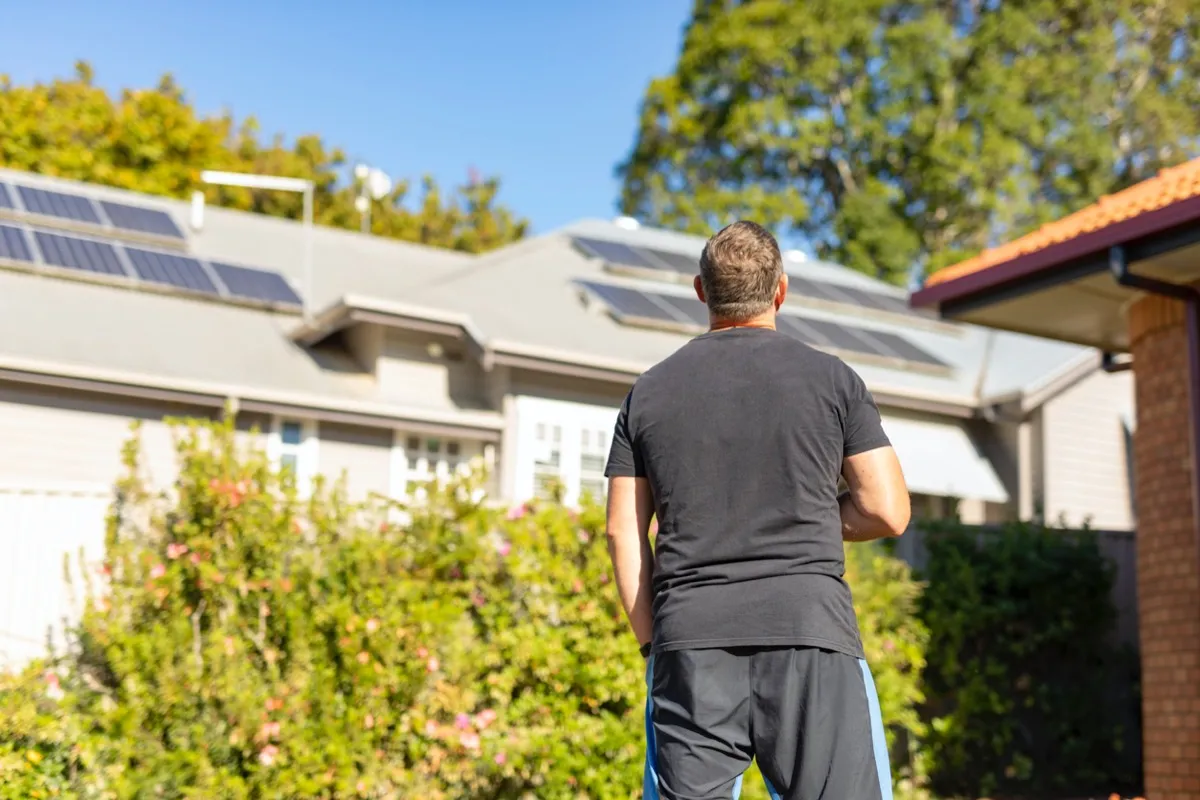
Well, again, that depends.
If you own your new home’s solar panels outright, then yes, you will save money on energy costs. How much you save will depend on the amount of solar power you generate, local utility rates, and how much energy the utility pays you for when you return it to the power grid. If your solar panels are leased, how much you save will be dependent on the lease terms.
The National Utility Rate Database allows you to look up current electricity rates in areas around the country and can provide a rough idea of how much you could save on monthly utility bills when buying a house with solar panels.
